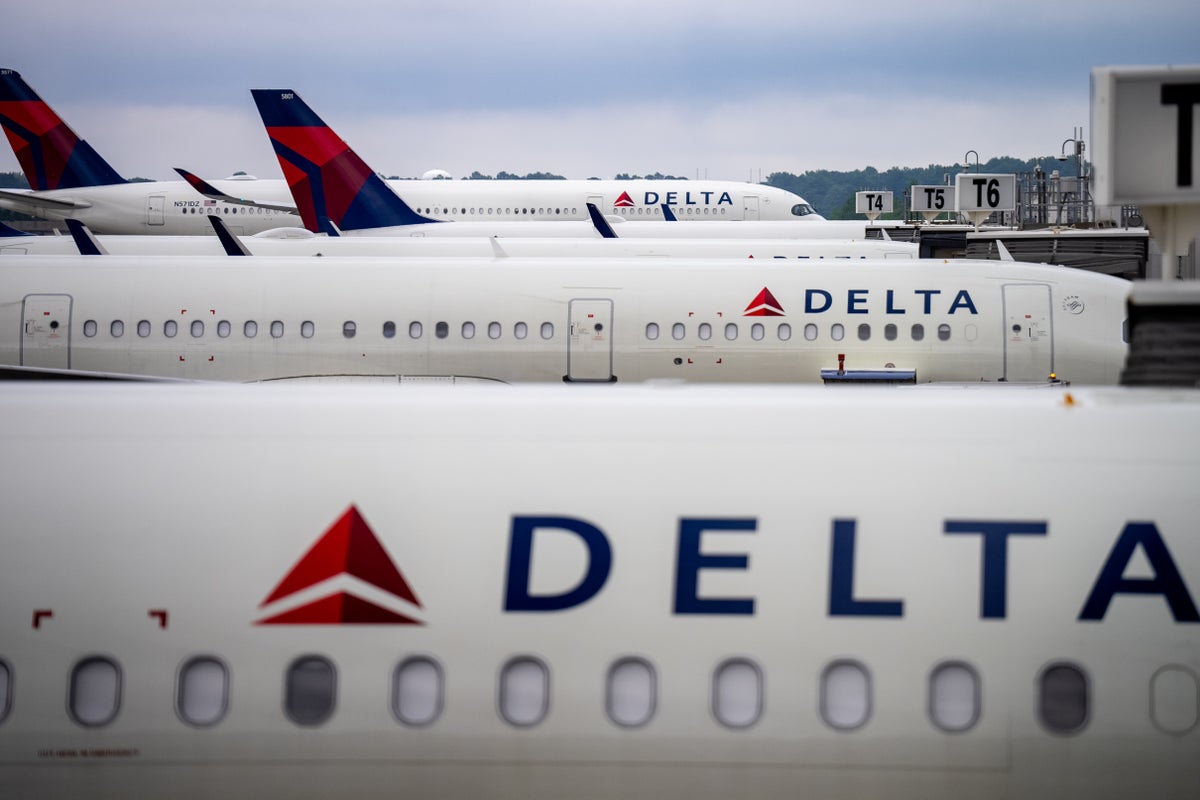
A Delta Air Lines flight bound for Brunswick, Georgia, was forced to return to Hartsfield-Jackson Atlanta International Airport on Friday following a pressurization issue shortly after takeoff.
Flight 5180, operated by Endeavor Air, was carrying 66 passengers and four crew members aboard a Canadair Regional Jet CRJ-700.
Oxygen masks were deployed as a precaution, though Delta later confirmed that four masks initially failed to activate but eventually did. No injuries were reported.
The aircraft landed safely and taxied to the gate under its own power, where emergency crews were standing by. A replacement crew was dispatched, and the flight arrived in Brunswick at 9:30 pm – more than four hours behind schedule.
Passenger Tom Rosenberger, who contacted FOX 5 about the incident, said he heard “a loud pop” in the cabin before the plane began its descent. He also described a strong oil smell, which he said made it difficult to breathe.
Shaken by the experience, Rosenberger chose not to board the replacement flight.
In a statement, Delta said: “At Delta, nothing is more important than the safety of our customers and people. That is why the flight crew of Delta flight 5180 – operated by Endeavor Air from Atlanta (ATL) to Brunswick (BQK) – followed established procedures and returned to Atlanta after a mechanical issue was observed during flight. We apologize to our customers for their experience and the delay in their travel.”
The airline says the issue is under review.
The Independent has contacted Delta for further comment.
The incident comes days after Delta announced it is replacing parts on more than 300 aircraft to combat toxic fume leaks, which can be linked to serious health issues, including brain injuries, among both crew and passengers.
Thousands of these so-called “fume events” have been reported to the Federal Aviation Administration in the last 25 years, in which dangerous fumes from a plane’s engines leak into the cockpit or cabin.
